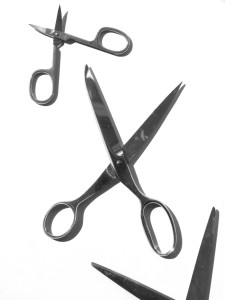Feeling wordy? Cut it out!
It breaks my writer’s heart to admit this, but people just don’t read – especially on the web. For every 100 people who click on a link, maybe 50 will make it through the first 200 words. Even fewer will actually finish reading the article.
Think of how you read on the web. A catchy title or interesting description may lure you to click. Do you always get past the first paragraph? Have you ever tweeted or shared an article that you didn’t actually read?
Reading on your mobile device? An 800-word blog can seem like an epic novel written in 8 pt font (for those of us over 40, that’s a big deal). How enticing would it need to be to get you to scroll through the whole thing?
Get to the point – quickly
There are specific rules for writing for the web. These are just a few that will help you get your
point across before you lose your audience.
- Keep blog posts to less than 500 words. Any content that doesn’t contribute to your message or is repetitive needs to be cut. Be ruthless.
- Get to the point quickly. Even if your reader gets past the first few paragraphs, they’ll likely just skim the rest. People rarely read word for word.
- Use short paragraphs and lots of white space. On a mobile device, a long paragraph can look like a big brick wall.
- Use bullet points and numbered lists. They’re easier to read.
- If you have a lot to say on a topic, find a way to break it into multiple posts. You’ll keep your reader engaged and you’ll have ready-made subjects for future posts.
Don’t lose the creativity
Keeping your posts brief doesn’t mean they have to be dry and boring. It takes skill, charm and creativity to keep the reader’s attention. Each sentence has to entice the reader to continue the next.
Opening with a story is a great way to hook your reader. The trick is to carry the momentum through the rest of the post.
Even though people may not be reading your posts word for word, it’s still worth it to keep at it. Writing posts is a great way to share your expertise and build your credibility. It takes effort, but learning how to write for the web will help increase your chances of getting your reader to the end of the page.
Need some help getting your blog posts polished and to the point? Contact us today to learn about our blog plans. info@writeapproach.ca

